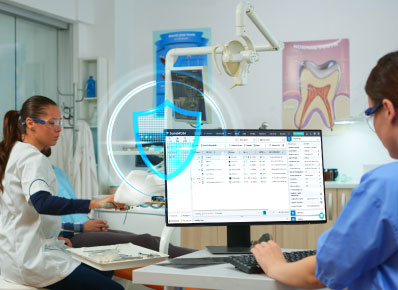Introduction
In the ever-evolving landscape of healthcare, the adoption of mobile devices has become a game-changer. These devices, ranging from smartphones to specialized medical equipment, empower healthcare professionals with instant access to patient records, diagnostic tools, and medical apps. While this digital transformation brings numerous advantages, it also introduces substantial concerns about the security and privacy of patient data. This is where Mobile Device Management (MDM) takes center stage, playing a pivotal role in safeguarding patient data and ensuring compliance with stringent healthcare regulations.
The Growing Importance of Mobile Devices in Healthcare
Mobile devices have seamlessly integrated into healthcare settings, significantly enhancing the efficiency and effectiveness of patient care. Healthcare providers now rely on these devices for tasks such as accessing electronic health records (EHRs), tracking patient vitals, and delivering real-time updates. However, this growing dependence on mobile devices also brings a host of security challenges to healthcare organizations.
Security Risks in Healthcare
Data Breaches: Healthcare data is an attractive target for cybercriminals due to its high value on the black market. A data breach can lead to the exposure of sensitive patient information, resulting in legal and financial repercussions for healthcare providers.
Loss or Theft: Mobile devices, due to their portability, are prone to loss or theft. In the absence of robust security measures, unauthorized individuals may gain access to confidential patient data.Compliance Concerns: Healthcare organizations must adhere to strict regulations, including the Health Insurance Portability and Accountability Act (HIPAA) in the United States. Non-compliance can result in severe penalties.
How MDM Addresses Healthcare Challenges
Mobile Device Management solutions are tailored to address these unique healthcare challenges:
- Device Encryption: MDM solutions enforce device encryption, ensuring that patient data remains protected even if a device is lost or stolen. This encryption extends to both data at rest and in transit.
- Access Control: Role-based access control is implemented via MDM, ensuring that only authorized personnel can access specific patient records and applications.
- Remote Management: In case of a lost or stolen device, MDM enables remote locking or wiping to prevent unauthorized access to patient data.
- App Management: MDM solutions allow healthcare organizations to whitelist approved medical apps while blocking unauthorized software, reducing the risk of malware infections.
- Compliance Monitoring: MDM provides tools for monitoring and auditing device and user activity, assisting healthcare organizations in maintaining compliance with regulations like HIPAA.
- Secure Communication: MDM ensures secure communication channels, protecting sensitive patient data during transmission and within healthcare networks.
- Training and Education: MDM solutions offer training and educational resources to healthcare staff, promoting best practices for mobile device security and data protection.
Benefits of MDM in Healthcare
- Enhanced Patient Trust: The robust security measures provided by MDM solutions build patient trust by demonstrating a commitment to protecting their sensitive information.
- Reduced Legal Risks: Compliance with healthcare regulations through MDM reduces the risk of costly legal penalties resulting from data breaches.
- Operational Efficiency: MDM streamlines device management, allowing healthcare organizations to focus on patient care rather than IT issues.
- Improved Patient Care: Secure and efficient access to patient data on mobile devices enhances the quality and speed of healthcare delivery.
- Cost Savings: Preventing data breaches and ensuring compliance with MDM can result in significant cost savings in the long run.
Conclusion
In an era where patient data security is paramount, the role of MDM in healthcare cannot be overstated. MDM serves as the guardian of patient data, ensuring its security, integrity, and confidentiality. By implementing MDM solutions, healthcare organizations can provide better patient care, enhance operational efficiency, and mitigate the security risks associated with the use of mobile devices in healthcare settings. MDM is the prescription for success, safeguarding both patient data and the reputation of healthcare providers in this digital age.

